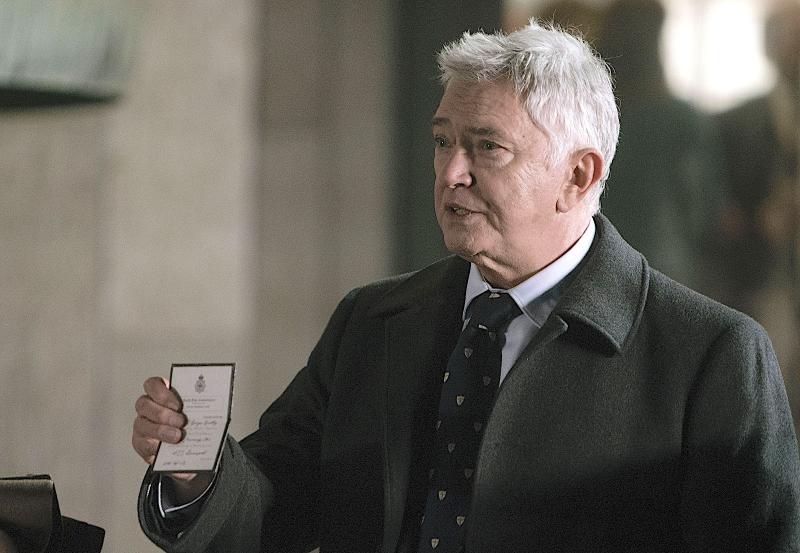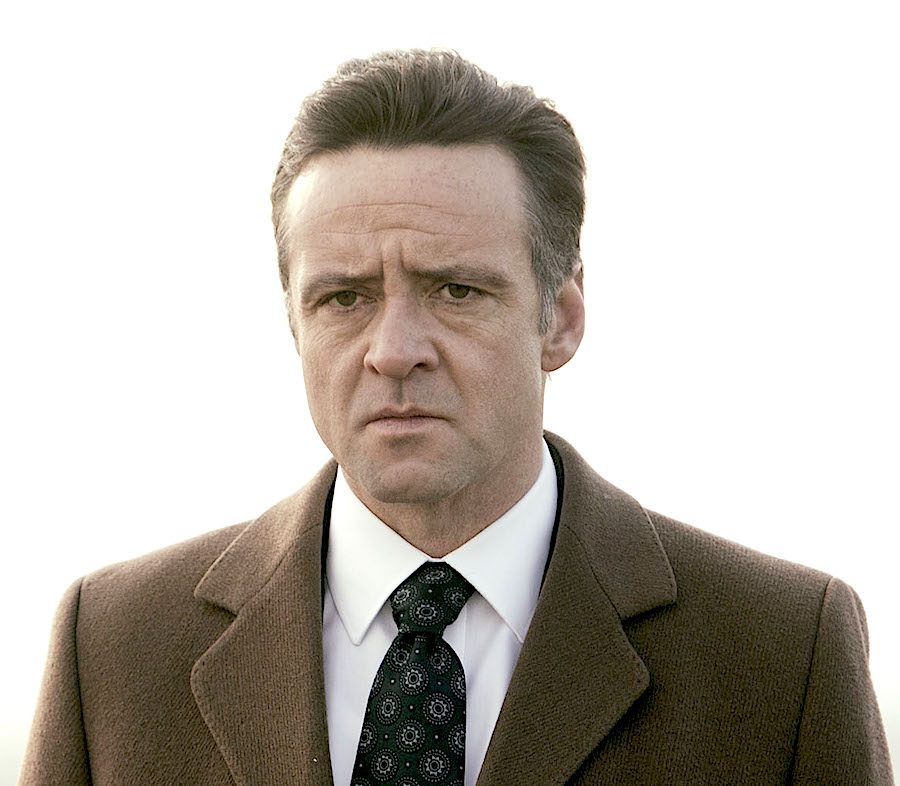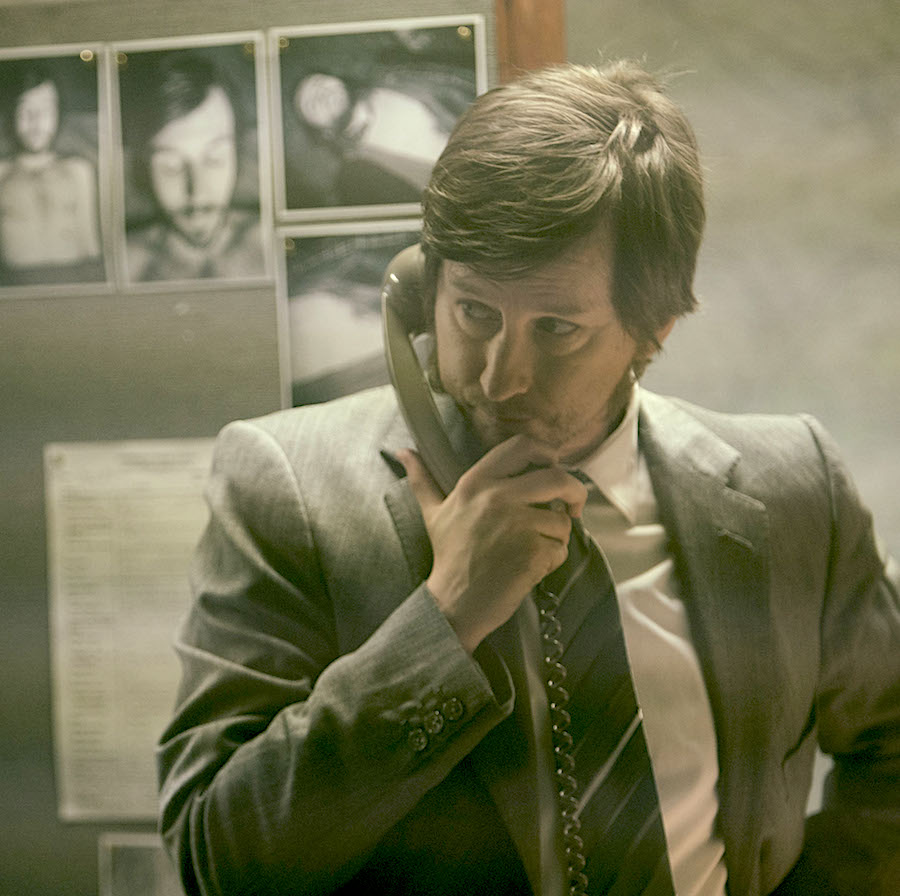Inspector George Gently, BBC One review - power, corruption and lies in his last-ever case | reviews, news & interviews
Inspector George Gently, BBC One review - power, corruption and lies in his last-ever case
Inspector George Gently, BBC One review - power, corruption and lies in his last-ever case
No more friends in the North East

And now the end is near… and so Inspector George Gently faces his final case. Deemed too political to be broadcast in its original slot in May – 10 days before the General Election – Gently and the New Age was postponed until 8.30pm last night.
It is December 1970 and yet the winter of discontent seems to have already begun. A scab – or, as John Bacchus (Lee Ingleby) suggests, “a non-union worker” – is stabbed as he crosses the picket line outside a local factory. In fact, the dead man turns out to have been an undercover journalist investigating the company’s secret links with Ted Heath’s ruling Tories.
 Meanwhile, old warhorse Gently (Martin Shaw) – whose initials are GG – is two weeks from retirement. Having just helped send down a few bent coppers at the Old Bailey, he is asked to investigate the investigation into the murder of a young woman in Washington four years ago. The chief suspect appears to be the local MP Michael Clements (Richard Harrington, pictured right, fresh from Poldark and Hinterland), a Downing Street contender until he was booted out of Harold Wilson’s cabinet for protesting against the Vietnam war.
Meanwhile, old warhorse Gently (Martin Shaw) – whose initials are GG – is two weeks from retirement. Having just helped send down a few bent coppers at the Old Bailey, he is asked to investigate the investigation into the murder of a young woman in Washington four years ago. The chief suspect appears to be the local MP Michael Clements (Richard Harrington, pictured right, fresh from Poldark and Hinterland), a Downing Street contender until he was booted out of Harold Wilson’s cabinet for protesting against the Vietnam war.
Clements is the cheerleader for a development project known as Marwick Point that will see a new bridge built across the Humber. His catchphrase (echoing George Osborne’s Northern Powerhouse) is “Believe in the North!” Unfortunately, his enthusiasm for Europe is only matched by his taste for female company. When Gently gets too close, he offers to tell him who really killed his wife Isabella in a hit-and-run incident that has cast a shadow over the inspector’s life ever since. His thirst for knowledge (and revenge) is so great that he grants Clements a week’s grace.
Of course it all ended in tears. Gently refused to compromise as more and more details of high-level conspiracy and corruption leaked out. Like one of Conrad’s doomed heroes, his duty (to uphold the rule of law; to stand up for common decency) is his reason for living. Without it – and without his wife – he is nothing.
 Shaw gave a towering performance that provided a fitting climax to the 24 episodes that comprise Peter Flannery’s portrait of 1960s Geordieland. The froideur that had lately developed between him and his sidekick Bacchus was subtly resolved in Robert Murphy’s script that highlighted the social aspiration that new towns represented – even if the trees were all the same height. Director Bryn Higgins has a fine eye for the North East’s industrial and architectural heritage, and ensured the characters appeared as real people rather than regional stereotypes.
Shaw gave a towering performance that provided a fitting climax to the 24 episodes that comprise Peter Flannery’s portrait of 1960s Geordieland. The froideur that had lately developed between him and his sidekick Bacchus was subtly resolved in Robert Murphy’s script that highlighted the social aspiration that new towns represented – even if the trees were all the same height. Director Bryn Higgins has a fine eye for the North East’s industrial and architectural heritage, and ensured the characters appeared as real people rather than regional stereotypes.
Ingleby (pictured above), who first showed off his talents in Nature Boy (2000), is known for The A Word and Line of Duty today, but he has never been better than in the scenes with Shaw. Like John Thaw and Kevin Whately as Morse and Lewis before them, the pair struck sparks off each other in the 10 years they have been together.
Will the series return as Bacchus? Viewers around the world will hope so, however unlikely. In the meantime the end of Gently provides the perfect excuse, should one be needed, to watch Flannery’s magnificent Our Friends in the North (1996) again.
The future of Arts Journalism
You can stop theartsdesk.com closing!
We urgently need financing to survive. Our fundraising drive has thus far raised £49,000 but we need to reach £100,000 or we will be forced to close. Please contribute here: https://gofund.me/c3f6033d
And if you can forward this information to anyone who might assist, we’d be grateful.

Subscribe to theartsdesk.com
Thank you for continuing to read our work on theartsdesk.com. For unlimited access to every article in its entirety, including our archive of more than 15,000 pieces, we're asking for £5 per month or £40 per year. We feel it's a very good deal, and hope you do too.
To take a subscription now simply click here.
And if you're looking for that extra gift for a friend or family member, why not treat them to a theartsdesk.com gift subscription?
more TV
 Murder Before Evensong, Acorn TV review - death comes to the picturesque village of Champton
The Rev Richard Coles's sleuthing cleric hits the screen
Murder Before Evensong, Acorn TV review - death comes to the picturesque village of Champton
The Rev Richard Coles's sleuthing cleric hits the screen
 Black Rabbit, Netflix review - grime and punishment in New York City
Jude Law and Jason Bateman tread the thin line between love and hate
Black Rabbit, Netflix review - grime and punishment in New York City
Jude Law and Jason Bateman tread the thin line between love and hate
 The Hack, ITV review - plodding anatomy of twin UK scandals
Jack Thorne's skill can't disguise the bagginess of his double-headed material
The Hack, ITV review - plodding anatomy of twin UK scandals
Jack Thorne's skill can't disguise the bagginess of his double-headed material
 Slow Horses, Series 5, Apple TV+ review - terror, trauma and impeccable comic timing
Jackson Lamb's band of MI5 misfits continues to fascinate and amuse
Slow Horses, Series 5, Apple TV+ review - terror, trauma and impeccable comic timing
Jackson Lamb's band of MI5 misfits continues to fascinate and amuse
 Coldwater, ITV1 review - horror and black comedy in the Highlands
Superb cast lights up David Ireland's cunning thriller
Coldwater, ITV1 review - horror and black comedy in the Highlands
Superb cast lights up David Ireland's cunning thriller
 Blu-ray: The Sweeney - Series One
Influential and entertaining 1970s police drama, handsomely restored
Blu-ray: The Sweeney - Series One
Influential and entertaining 1970s police drama, handsomely restored
 I Fought the Law, ITVX review - how an 800-year-old law was challenged and changed
Sheridan Smith's raw performance dominates ITV's new docudrama about injustice
I Fought the Law, ITVX review - how an 800-year-old law was challenged and changed
Sheridan Smith's raw performance dominates ITV's new docudrama about injustice
 The Paper, Sky Max review - a spinoff of the US Office worth waiting 20 years for
Perfectly judged recycling of the original's key elements, with a star turn at its heart
The Paper, Sky Max review - a spinoff of the US Office worth waiting 20 years for
Perfectly judged recycling of the original's key elements, with a star turn at its heart
 The Guest, BBC One review - be careful what you wish for
A terrific Eve Myles stars in addictive Welsh mystery
The Guest, BBC One review - be careful what you wish for
A terrific Eve Myles stars in addictive Welsh mystery
 theartsdesk Q&A: Suranne Jones on 'Hostage', power pants and politics
The star and producer talks about taking on the role of Prime Minister, wearing high heels and living in the public eye
theartsdesk Q&A: Suranne Jones on 'Hostage', power pants and politics
The star and producer talks about taking on the role of Prime Minister, wearing high heels and living in the public eye
 King & Conqueror, BBC One review - not many kicks in 1066
Turgid medieval drama leaves viewers in the dark
King & Conqueror, BBC One review - not many kicks in 1066
Turgid medieval drama leaves viewers in the dark
 Hostage, Netflix review - entente not-too-cordiale
Suranne Jones and Julie Delpy cross swords in confused political drama
Hostage, Netflix review - entente not-too-cordiale
Suranne Jones and Julie Delpy cross swords in confused political drama

Add comment